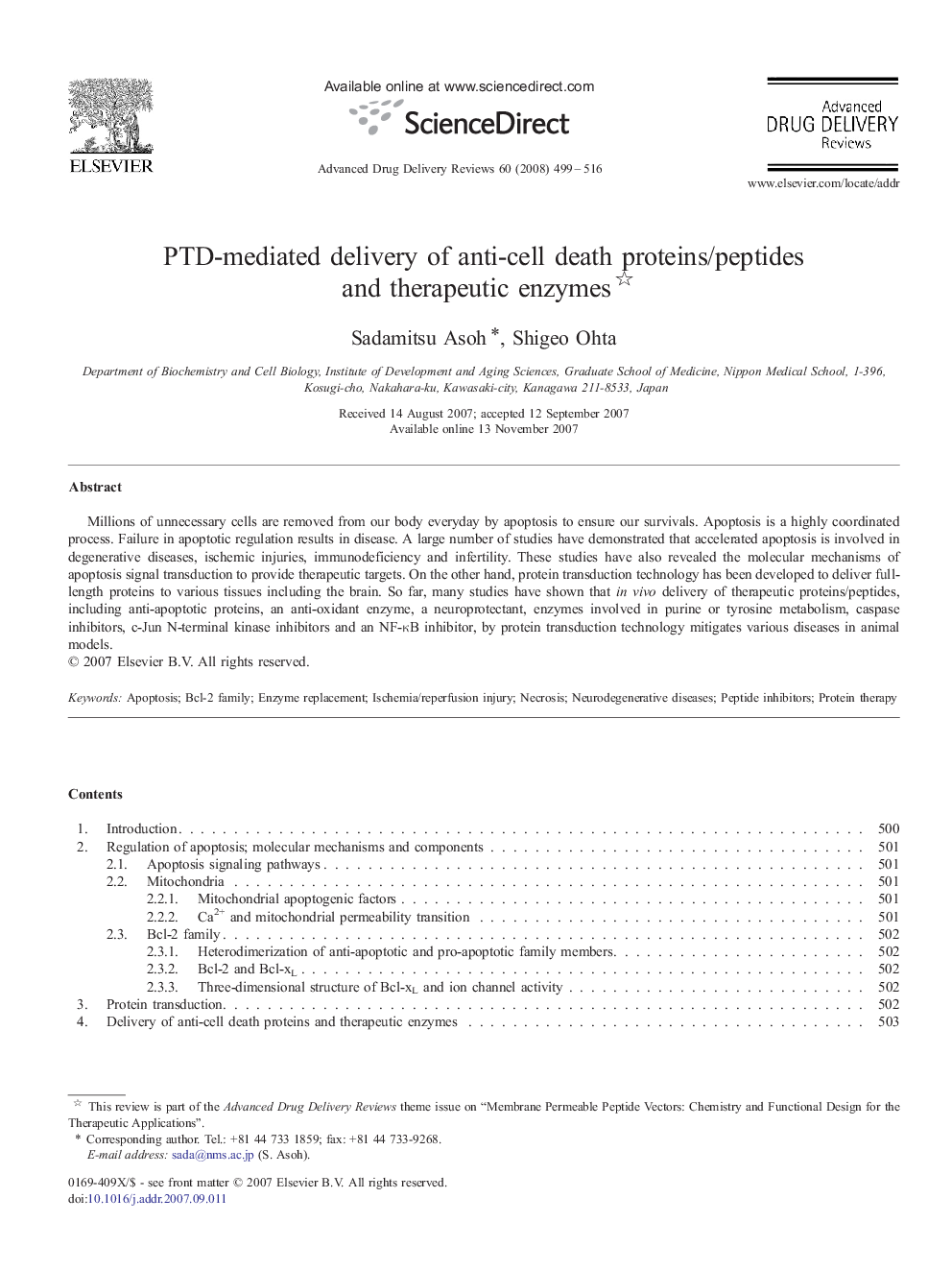| Article ID | Journal | Published Year | Pages | File Type |
|---|---|---|---|---|
| 2071813 | Advanced Drug Delivery Reviews | 2008 | 18 Pages |
Millions of unnecessary cells are removed from our body everyday by apoptosis to ensure our survivals. Apoptosis is a highly coordinated process. Failure in apoptotic regulation results in disease. A large number of studies have demonstrated that accelerated apoptosis is involved in degenerative diseases, ischemic injuries, immunodeficiency and infertility. These studies have also revealed the molecular mechanisms of apoptosis signal transduction to provide therapeutic targets. On the other hand, protein transduction technology has been developed to deliver full-length proteins to various tissues including the brain. So far, many studies have shown that in vivo delivery of therapeutic proteins/peptides, including anti-apoptotic proteins, an anti-oxidant enzyme, a neuroprotectant, enzymes involved in purine or tyrosine metabolism, caspase inhibitors, c-Jun N-terminal kinase inhibitors and an NF-κB inhibitor, by protein transduction technology mitigates various diseases in animal models.
